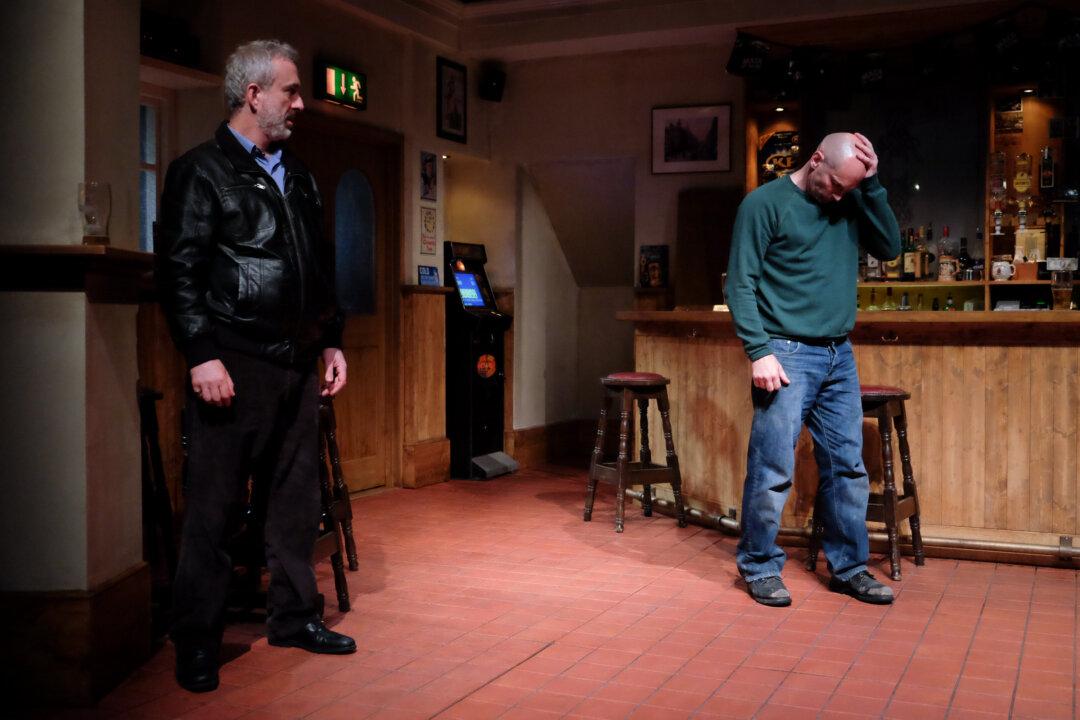NEW YORK—Questions of accountability are raised, debated, and answered, at least to some extent, in Owen McCafferty’s very powerful and somewhat ironically titled drama “Quietly.”
The show was originally presented at the Abbey Theatre in Ireland and is now at The Irish Repertory Theatre.
In a Belfast pub in 2009, bartender Robert (Robert Zawadzki), a recent Polish immigrant, is watching a televised World Cup qualifying match. Jimmy (Patrick O'Kane), one of his regular customers, walks in and the two exchange small talk and good-natured insults.
Jimmy mentions he'll be meeting another man here shortly and for Robert to pay them no mind.
While tendrils stemming from boyhood loyalty may loosen their grip with the passage of years, they never leave one altogether.





